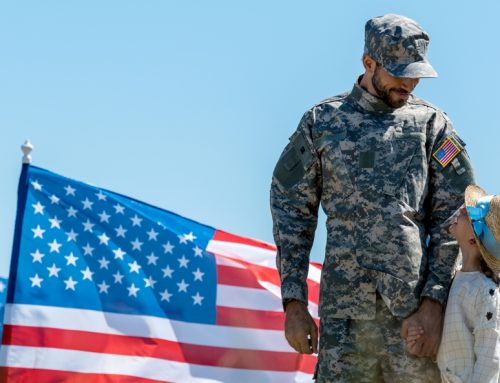Secretary of Defense Lloyd Austin issued a Memorandum on August 9, 2021, announcing that he will “seek the President’s approval” to make the COVID-19 vaccines mandatory in the military “no later than mid-September, or immediately upon the U.S. Food and Drug Administration (FDA) licensure, whichever comes first.”
In response to this memo, the military lawyers at the National Security Law Firm have received numerous inquiries from military service members regarding: (1) the constitutionality of such a mandate; (2) whether any exemptions would apply to the mandate; and (3) what would happen if a military member were to refuse to comply with such an order.
Each of these concerns will be discussed in further detail below.
The Constitutionality of Mandatory COVID-19 Vaccinations in the Military
In the military, a mandatory vaccination order will be presumed lawful and, therefore, will be constitutional, if either: (1) the vaccine has been FDA-approved; or (2) if the vaccine has been granted Emergency Use Authorization (EUA) and the President waives the “informed consent” process.
Regarding FDA approval, it has been suggested that the Pfizer-BioNTech vaccine could achieve full FDA licensure early in September of 2021 — just in time for Secretary Austin’s mid-September goal of making the COVID-19 vaccines mandatory. Once the FDA fully licenses or approves a vaccine, there is virtually no basis upon which the constitutionality of a mandatory vaccination order can be raised.
Moreover, even if the COVID-19 vaccines do not receive full FDA licensure prior to Secretary Austin’s mid-September target, a mandatory COVID-19 vaccination order could nonetheless be considered lawful if President Biden issues a waiver of the informed consent process. Pursuant to 10 U.S.C. § 1107(a), entitled “Notice of Use of an Investigational New Drug or a Drug Unapproved for its Applied Use,” in situations involving vaccinations with only Emergency Use Authorization, the statute requires “informed consent” – which military members can withhold by refusing the vaccine.
The informed consent requirement, however, can be waived by the President. In order to do so, President Biden must find that waiving the informed consent process is in the “interests of national security.” Although Secretary Austin has not yet asked President Biden to waive the informed consent process, based on the August 9, 2021, memo, should the vaccines not obtain FDA approval in time, it sounds like Secretary Austin will be asking President Biden to exercise this waiver authority. Moreover, President Biden has publicly stated in the past that he would support a waiver of the informed consent process in the COVID-19 context. Should President Biden formally waive the informed consent process, most legal analysts expect such a waiver to carry the same level of authority as FDA licensure would. Thus, it is highly unlikely that there would be any grounds to challenge the constitutionality of any such order.
Exemptions to Mandatory COVID-19 Vaccinations
Even if COVID-19 vaccinations are mandated, whether through the FDA-approval process or via a Presidential waiver, it is important to recognize that the military does recognize two main types of exemptions from vaccinations: medical and administrative.
Medical exemptions must be validated by an appropriate health care professional and are further divided into temporary medical exemptions and permanent medical exemptions. Temporary exemptions can be granted for up to one year and could cover situations such as pregnancy, acute illness, and temporary immune suppression. Permanent exemptions, on the other hand, can be granted indefinitely and would apply to conditions such as HIV infection or other permanent immune suppression or a determination by a medical provider that vaccination will endanger a person’s health
Administrative exemptions are usually controlled by a service member’s unit commander and include:
-
Exemptions from immunizations due to the service member being subject to separation or retirement within 180 days;
-
Separation of civilian employees and contractor personnel within 30 days; and
-
Religious exemptions.
Vaccination exemptions for religious reasons are granted in accordance with service-specific policies to accommodate the religious beliefs of a military service member. Religious exemptions are command decisions made with medical, judge advocate, and chaplain input.
Religious exemption requests must comply with the provisions of the relevant branch of the servicemember requesting religious accommodation.
-
For the Army, religious accommodation policy is set forth within Army Regulation 600–20;
-
For the Marine Corps and Navy, religious waivers are decided on a case-by-case basis by the Chief, Bureau of Medicine, and Surgery;
-
For the Air Force, the MAJCOM commander is the designated approval and revocation authority for temporary immunization exemptions (permanent exemptions for religious reasons are not granted); and
-
For the Coast Guard, CG–122 is the designated approval and revocation authority for religious immunization exemptions. USCG requests must be forwarded through the appropriate chain to Commandant CG–122 via CG–112. ***Please note that on August 30 the Coast Guard issued Military Religious Accommodation COMDTINST 1000.15 which changed CG-122 to CG-133. All requests should be forwarded through CG-1121 to CG-133.
Medical and administrative exemptions are further discussed in Joint Instruction (AR 40-562, BUMEDINST 6230.15B, AFI 48-110_IP, CG COMDTINST M6230.4G) Immunizations and Chemoprophylaxis for Prevention of Infectious Disease.
Refusal to Comply With Mandatory COVID-19 Vaccination Order
Given that mandatory immunization seems highly likely in the very near future, many service members are wondering what will happen if they refuse to comply with the order to vaccinate. A service member’s refusal to carry out a lawful order would likely violate Article 92 of the Uniform Code of Military Justice (“UCMJ”), Failure to Obey Order or Regulation. Punishment could include a dishonorable or bad-conduct discharge, two years confinement, and forfeiture of all pay and allowances.
If a service member refuses an order to get vaccinated, their commander can issue an administrative reprimand or a non-judicial punishment (“NJP”). Administrative reprimands are written complaints that go in a service member’s permanent file and can significantly affect career advancement and promotions. NJPs vary with rank and can range from a lowering in rank to a reduction in pay or a discharge. If a military member refuses an NJP, they can be tried at court-martial.
Experienced, Nationwide Military Law Attorneys
If you have concerns about being vaccinated or if you plan on refusing the COVID-19 vaccine, contact the experienced military law attorneys at the National Security Law Firm today for a free consultation. We are here to help answer your questions concerning the applicability of exemptions in your particular situation. In addition, our experienced UCMJ lawyers are available to defend you should you be subject to punishment for declining the COVID-19 vaccine.
Call us today at (202) 600-4996.


